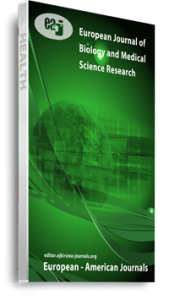This experiment studied the effect of various concentrations of Fe-chealate (Fe-EDTA) in the efficacy of four strains of Sinorhizobium melioti, isolated locally from root nodules of alfafa plants (Medico sativa), these plants garthing from different location in Iraq (Baghdad, and Babylon). The rhizome strains were named (S1, S2, S3, S4).This stady divided in two parts, alabrotary experiment meased the colony forming unit (CFU) for all isolated strains under 3 concentrations of Fe-EDTA (2mg, 4mg, 8mg)/ L, through incubation of 48, 72 hours. The results of this experiment showed a significant increasing in a count of (CFU) (P ≤ 0.05) for all strains, specially and (4mg, 8mg,) Fe/L.The farmer experiment in plastic pots size (5kg) soil putted in the green house, studied some growth parameters of alfafa plants such as: the length of shoot, dry weight, numbers of root nodules, and the concentration of nitrogen and protein in plants. The results shoed that the effect of (Fe-EDTA) was very effective in the effecinacy of all four Sinorhizobium strains under study, in nitrogen fixation process, and increasing there ability for fixing nitrogen when issociation with Medico sativa plants. The results present a significant increasing in the growth parameters were mentioned. These parameters were increased when increased the Fe-EDTA concentrations. The treatment (bacteria + 0.6mg Fe) showed the best results comparing with other treatments for all strains. The strain S3 present the best results comparing with other strains but S2 strain present the less significant results in this study.
Keywords: Alfafa plants, Fe-EDTA, Sinorhizobium

